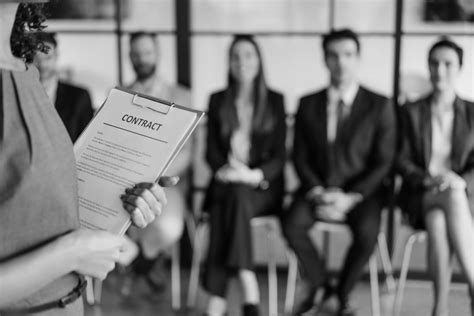Introduction

Job interviews can be stressful experiences, both for candidates and interviewers. It’s not uncommon for interviewers to appear tired during an interview, especially if they have a full schedule or have been conducting multiple interviews throughout the day. A tired interviewer can make it challenging for candidates to fully engage and make a positive impression.
In this article, we will explore the various factors that can contribute to interviewer fatigue and provide practical strategies for candidates on how to handle such situations. We will also discuss the potential consequences of interviewer fatigue and how to mitigate its impact on the interview process.
Causes of Interviewer Fatigue
There are numerous reasons why an interviewer may seem tired during an interview:
- Extended work hours: Interviewers may have had to work long hours leading up to the interview, preparing questions, reviewing resumes, and conducting research.
- Multiple interviews: Interviewers who conduct several interviews back-to-back may experience fatigue due to the repetitive nature of the process.
- High workload: Interviewers with a heavy workload, including other responsibilities such as team management or project deliverables, may not have had sufficient time to rest or prepare for the interview.
- Physical or mental exhaustion: Interviewers may be experiencing physical or mental exhaustion due to a lack of sleep, stress, or other personal factors.
Handling a Tired Interviewer
While it’s not ideal to have an interview with a tired interviewer, there are steps candidates can take to navigate the situation:
1. Be understanding:
Recognize that the interviewer may be tired and show empathy. Avoid taking their fatigue personally.
2. Engage proactively:
Ask open-ended questions to demonstrate your interest and knowledge. This can help spark the interviewer’s engagement.
3. Be concise and focused:
Keep your answers brief and to the point. Avoid rambling or providing unnecessary details.
4. Use verbal cues:
Pay attention to the interviewer’s body language and verbal cues. If they seem uninterested or distracted, adjust your communication style accordingly.
5. Ask for clarification:
If you sense that the interviewer is tired, don’t hesitate to ask for clarification on questions or points that aren’t clear.
6. Highlight your enthusiasm:
Show your passion for the position and the organization. This can help energize the interviewer and create a more positive atmosphere.
Consequences of Interviewer Fatigue
Interviewer fatigue can have several consequences for the interview process:
- Poor candidate experience: A tired interviewer may not be able to fully engage with candidates, which can lead to a negative candidate experience.
- Biased evaluations: Fatigue can impair interviewers’ judgment and lead to biased evaluations of candidates.
- Unprofessional impression: Interviewers who appear tired may project a unprofessional image of the organization.
- Missed opportunities: A tired interviewer may miss important details or fail to fully evaluate a candidate’s skills and experiences.
Tips and Tricks
Here are some additional tips and tricks for handling a tired interviewer:
- Bring a positive attitude: Your enthusiasm can help offset the interviewer’s fatigue.
- Be well-rested: Get a good night’s sleep before the interview to ensure you’re at your best.
- Arrive early: This gives you time to settle in and reduce stress.
- Use humor appropriately: A touch of humor can help lighten the mood and engage the interviewer.
- Don’t give up: Even if the interviewer seems tired, don’t give up on making a positive impression.
FAQs
1. What if the interviewer is consistently distracted?
Answer: Politely request the interviewer’s full attention or suggest rescheduling the interview at a more convenient time.
2. What if I feel the interviewer is not asking meaningful questions?
Answer: Ask insightful questions of your own or redirect the conversation to areas that are more relevant to your experience and skills.
3. How can I gauge the interviewer’s level of fatigue?
Answer: Pay attention to their body language, eye contact, and verbal cues.
4. Should I reschedule the interview if the interviewer is clearly tired?
Answer: If the interviewer’s fatigue is significantly impacting the interview process, you may consider requesting a reschedule.
5. What should I do if I get a bad feeling about the interview due to the interviewer’s fatigue?
Answer: Trust your instincts and follow up with the interviewer or hiring manager to express your concerns.
6. Can I ask the interviewer if they’re tired?
Answer: It’s generally not considered appropriate to ask an interviewer if they’re tired. Instead, focus on maintaining a positive and professional demeanor.
Conclusion
Interviewing with a tired interviewer can be a challenging experience, but it’s important to remember that it’s not a reflection of your own abilities. By understanding the causes of interviewer fatigue and employing effective strategies, candidates can navigate such situations and make a positive impression. By maintaining a positive attitude, engaging proactively, and using creative tactics, candidates can demonstrate their professionalism and enthusiasm, even when faced with a tired interviewer.
